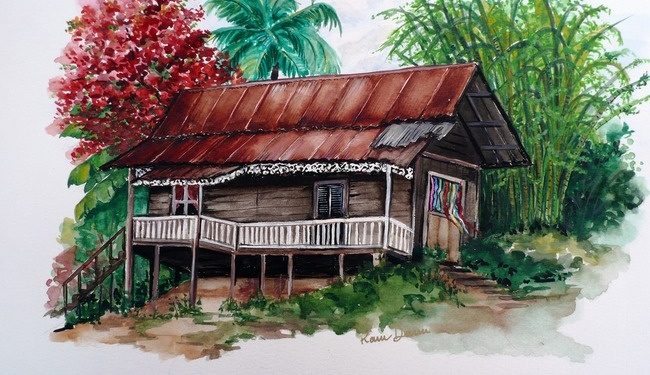Sudha Devi Nayak
VS Naipaul, the titan of English Literature who died at his London home last August was seen as an heir to such masters of prose as Conrad, Dickens and Tolstoy. Dwight Garner said of him in the ‘New York Times’: “In his obvious greatness, in the hard truths he dealt, Naipaul attracted and repelled.”
Naipaul looked with an unforgiving eye, at the evils of colonialism with its arrogance, deception and self aggrandisement.
The book begins and ends with the death of Mr Biswas, arriving full circle as Naipaul traces the span of his life with all its indignities and yet his hopeful aspirations for a decent life for himself and his family
‘A House for Mr Biswas’ was his breakthrough novel, considered his prose epic, his meditation on displacement. The ‘Time magazine’ listed it as one of the 100 best English Language novels between 1923 and 2005. It tells the story of the struggles of a middle class journalist towards identity and independence.
The book begins and ends with the death of Mr Biswas, arriving full circle as Naipaul traces the span of his life with all its indignities and yet his hopeful aspirations for a decent life for himself and his family. Mr Biswas is characterised on Naipaul’s father who started life as a sign painter and then rose to being a journalist. The novel covers three generations of a family with his birth, his life with its vicissitudes.
The very birth of Mr Biswas is considered inauspicious: “Boy, boy, the midwife cried, but what sort of boy? Six fingered, and born in the wrong way.” Mr Biswas did not bring luck with him and ill luck seemed to dog his whole life. His father died and he was packed off to live with his relatives and life meant shifting from one place to another.
When he marries, his life turns into a series of battles with his domineering in-laws who suffer him under his roof, condescending and indifferent. With a growing family and the resentment he felt living with them Mr Biswas was always in search of a house, wanting to lay a claim to his own corner of the world, where he could assert himself and live as his own man. He acquired two houses rudely constructed and prey to the vagaries of Nature.
Finally he was duped into buying a house with several flaws and his last thought as a dying man was about his acquisitions: “the car in the garage, the glass cabinet for his wife, the book case, the typewriter, the dining table he managed to get cheap”.
But bigger than them all was the house, his house. How terrible it would have been, at this time, to be without it; to have died among the Tulsis, amid the squalor of that large, disintegrating and indifferent family; to have left Shama and the children among them, in one room; worse to have lived without even attempting to lay claim to ones portion of the earth; to have lived and died as one had been born, “unnecessary and unaccommodated”.
He was aware of the mortgage on the house, he had no money, his wife had no money but still the fact he had a house mattered to the dying man. At the same time ironically the newspaper sacked him for long absence. His daughter Savi came from England to be with him and he was proud that she had started to earn a bigger salary than he did and she had started to earn just as he stopped earning.
The traumas and travails of Mr Biswas, his desperate attempts to live between obligations to family and his desire for independence reflect the ordinary lives of many men and women and their dilemmas. Naipaul’s richness of comic insight and the innate tragic power of the story he tells with remarkable subtlety, humour and compassion not unmingled with scorn or irony makes it a great readable experience.






































